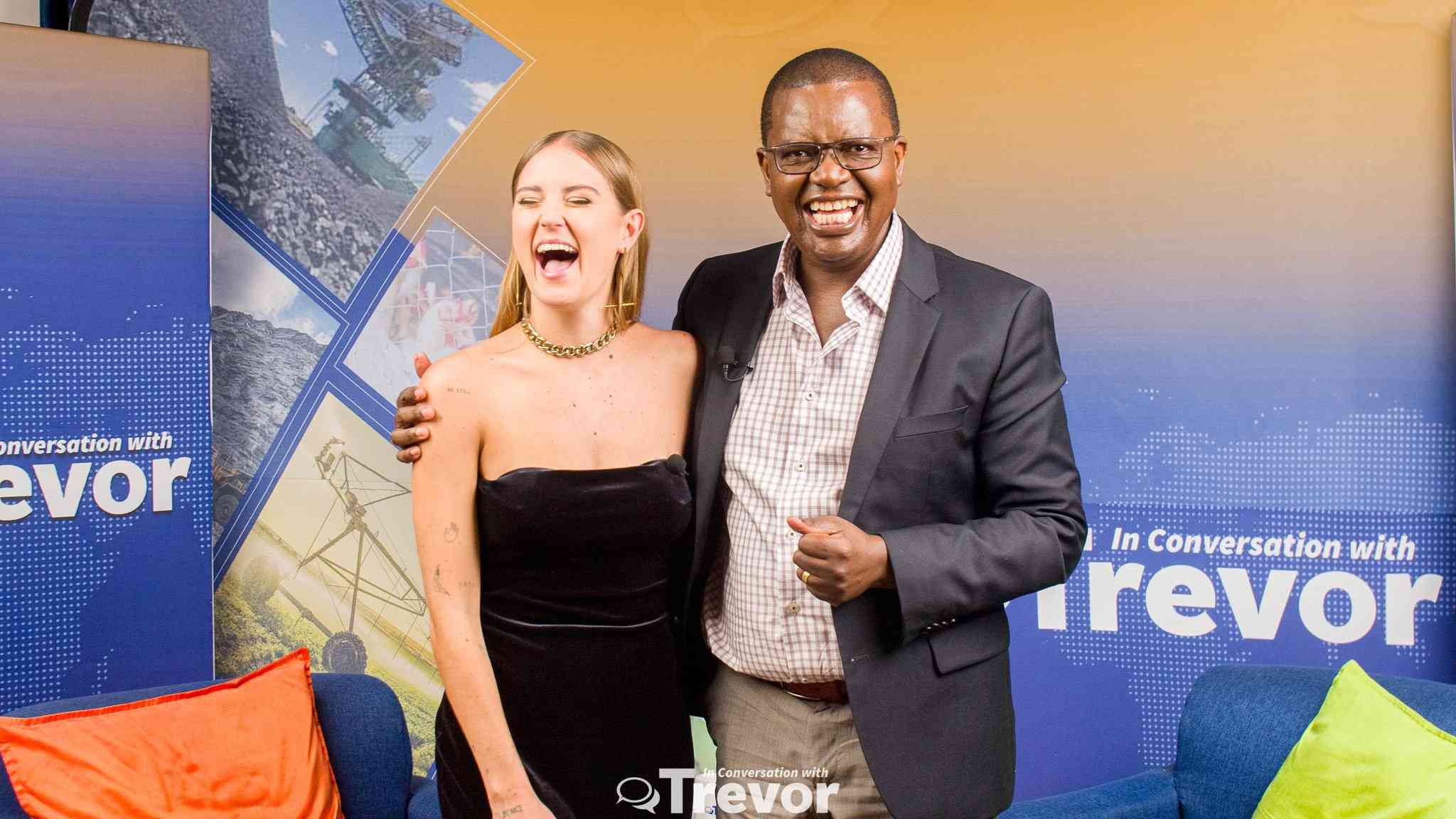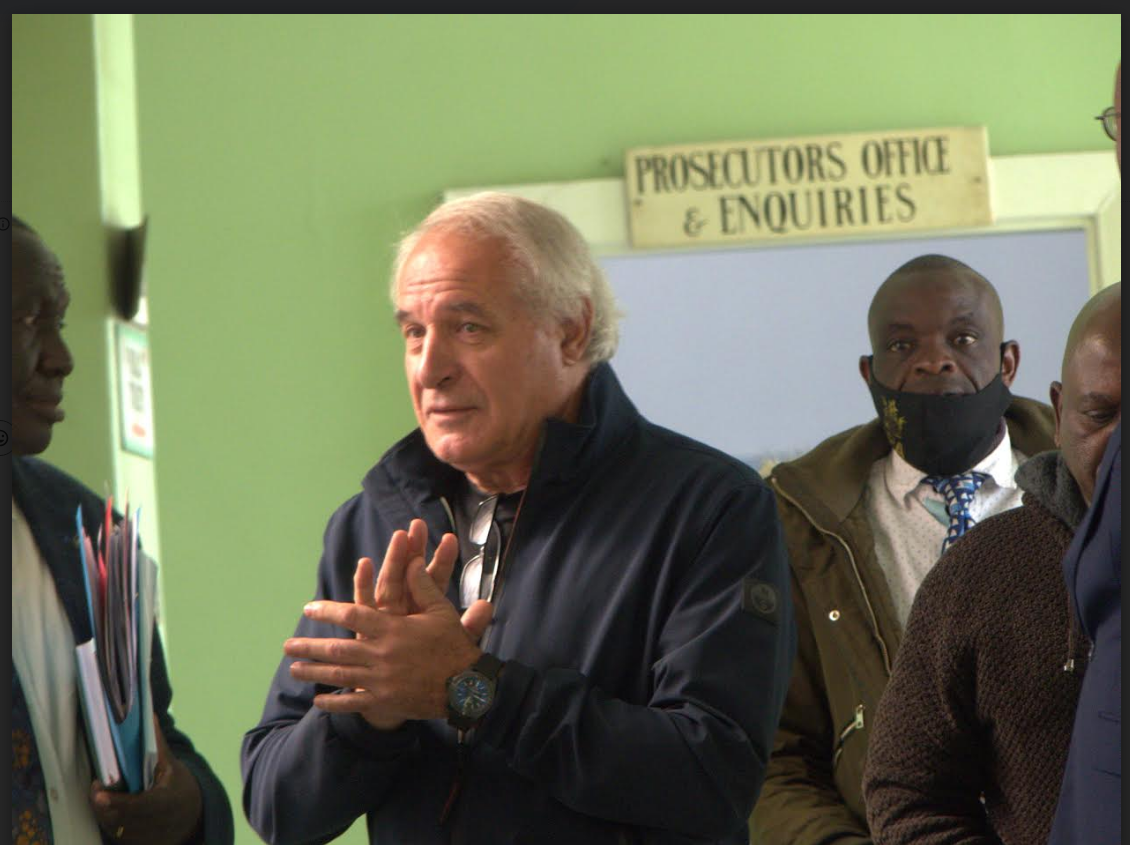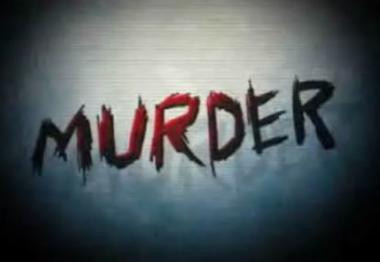
Afrofusion musician Gemma Griffiths says watching Zimdancehall star Winky D doing his work was inspirational for her as he is perfectionist.
Griffiths (GG), whose collaboration with Winky D on the song MuGarden broke Zimbabwe’s record for the fastest YouTube views and made into number one on the BBC Afrobeats charts shortly after its release, spoke Alpha Media Holdings chairman Trevor Ncube (TN) on the platform In Conversation with Trevor about her music journey.
Below are excerpts from the interview.
TN: Gemma Griffiths, welcome to In Conversation With Trevor. Wow. Wow. I mean I love the song. Ndichatarisa. Tell me what is the motivation? What was the inspiration behind the song?
GG: Thank you Trevor. You know Ndichatarisa was a very honest moment that sort of happened last year.
I was going through something really rough, and I think I have always sort...You know know when I was younger I used music as a way to express myself, and I think Ndichatarisa was exactly that.
I was going through something really rough, and really unexpected in my personal life and I just remember standing in the lounge and and praying this prayer, “ndichatarisa kwamuri Mwari”.
- Zim hosts Africa Triathlon Junior Development Camp
- Wynn targets medal winning swansong at Troutbeck
- Big turnout for juniors at Africa Triathlon Cup
- Religion: Overcoming doubt and unbelief
Keep Reading
When I cannot see a way out then I am going to lift my eyes. It was an incredibly honest song, and it was a song for me.
TN: Part of your healing?
GG: Yeah. Absolutely a massive part of my healing.
And I think sometimes when you make music for yourself you do not realise how many other people needed to hear it you know.
TN: You can say that again.
The things that become successful in life, the things that are impactful instances are the things that we do because we want to heal ourselves.
We want to provide a service for ourselves, not realising that there are so many in a similar position.
GG: Absolutely. And I think there is strength in that. Humans, we like community, we like connection.
TN: We are the same in so many respects.
GG: Yeah. And we heal through knowing… I think sometimes that other people have gone through similar things, you know.
TN: How long did you take to to put the song together?
GG: Very quickly actually.
I found out that sometimes the songs that have done the best in in my life, at least in my career, have been quick.
I think sometimes the creative process is such a different thing, and sometimes it happens so differently every single time.
But there are these beautiful moments where you basically just sing songs the whole way through.
TN: Where it's effortless? It just pours out?
GG: It just pours out. And those are the best.
TN: Yeah. Was MuGarden the same thing? The one that you did with Winky D?
GG: Yeah. MuGarden was incredibly special.
I think I was a little bit star struck definitely, but MuGarden we spent quite a long time in the studio because Winky D really has a vision for his art, and he knows what he wants to create, and time is not an issue.
There is no time pressure, it is like let us take as long as it takes to get this perfect, you know.
So that was very inspiring, just watching the way that he works, and that he wants everything to be a certain way and to perfect it and yeah it was amazing.
TN: There is something that you said which I found very powerful, and I am going to read it. “I owe so much of my journey to Zimbabwean music culture and to Zimdancehall.
“I am grateful for my upbringing, for my parents and for my country, as before anything else I am Zimbabwean.” That is beautiful.
GG: Thank you.
TN: That is powerful. Unpack that for us?
GG: Yeah. I think as a white woman in a black music space, coming up through Zimdancehall which is sort of where everyone first heard of me, it was through MuGarden.
There was a lot of privilege that came with my race.
But I do owe everything to to Zimdancehall, to Zim music culture.
To people like Winky D, and Fanton Levels at Chillspot Records who gave me a chance and a space and a voice, and who listened and who helped me make the music that I made.
Like I said, before anything else I am a Zimbabwean.
Before my race, before anything else that is who I am. I grew up in Harare, a couple of blocks down from the city centre, and it is home.
TN: Where were you born?
GG: I was born in Cape Town. My mom had a slightly complicated pregnancy, so she had to go and have me with a specific doctor.
But my folks were living here. Both born in Zimbabwe.
TN: Where did you go to school?
GG: Here. So I came back to [Zimbabwe] when I was six days old. So it was just to make sure that she delivered me safely.
TN: Which school did you go to?
GG: I went to Heritage. I went to Bishopslea, and I went to Chisipite.
TN: I know Mr Crook, the headmaster of Bishopslea is very proud of you.
GG: Yes.
TN: He always brags about you. You love this country, don't you? It comes across so powerfully.
I was watching your video going up Chimanimani. Talk to me about your love for this country?
GG: Yeah absolutely. I think Zimbabwe, there is something incredibly special about this place, and and I have traveled to a lot of different places with my work over the past 10 years.
I have been in a lot of different spaces, a lot of different countries on tour, and there is nothing quite like Zimbabwe.
I think there is a there is a joy in Zimbabwean people, there is an openness and a kindness, and I am a people person.
So, for me that connection, that sense of community, that sense of knowing your responsibility to each other before yourself is something that I found in innately Zimbabwean.
I think the natural spaces in our country, like you said, Chimanimani.
TN: Chimanimani.
GG: I am a lover of nature, whenever I have a free moment outside and in nature.
[As] I grew up [and] my mom runs an amazing reforestation programme called My Trees.
And they reforest indigenous trees in Hurungwe and down in Mutare and that sort of area, all the way to Chimanimani.
I think I grew up with that, you know going into wild spaces.
TN: So that is where you take it from? Being a person that loves being with other people?
GG: Yeah, I would say so. And and I think a person who loves being in nature.
So, Zimbabwe has my two favourite things, kind people and warm people, and people that I connect with, and beautiful wild spaces.
TN: You went on a nationwide tour of Zimbabwe, 11 shows across Zimbabwe in 2022. Talk to me about that.
GG: The Girl From Harare Tour. I have always wanted to do a tour across [Zimbabwe], you know.
I think sometimes if an artist gets booked for a show we often just go to that city for a night, do the show we come back.
TN: Then you come back, hotel [to] home…
GG: Exactly. And for me, I wanted to connect with people on the ground.
I wanted to explore what it would feel like to actually go and bring my music to as many places as as possible.
So, I got a team together, and actually was very much behind putting that tour together.
I had amazing people helping me, but I have always sort of been someone who wants to be involved in every decision, in the business side of my career.
And for me, learning how to do production on a show, how to put that together, everything from ticketing to booking venues, to lights to stage, to sound, to booking the artist, to making sure their accommodation and their food was sorted, to understanding what was going to go into security and making sure how people could buy tickets, wristbands.
Everything. I wanted to be on top and involved in every area of that and be able to actually produce a nationwide tour. Because I think...
TN: What was the biggest takeaway for you from that tour?
GG: Well, they were a few definitely. I think on the organisation side, just the colossal amount of work that goes into putting on a show, which as an artist is also, I think really important to understand and something I wanted to understand because often you are just the person who goes.
You have practiced your set, you go, and you do what you are meant to do.
TN: Yeah.
GG: But it is nice to understand what everybody else's role is. And how much work has gone into putting together a production.
TN: Yeah.
GG: I think sound equipment, just my appreciation of a good sound engineer, you know.
I think the getting on a bus with 27 people who you are working with, your crew your band, everybody and anybody who was involved in that process.
And then driving, chatting, connecting and seeing all the spaces you know in the context of where you are going.
I think it was amazing.
To be able to connect with people, we also did a lot of work in between the shows um with an organisation called Gold Youth, and as well in Hwange National Park.
Just taking moments outside of the performance and outside of setting up the shows to actually connect with people, connect with youth.
TN: In a way you are being an ambassador for Zimbabwe, isn't it? Because the world is seeing bits and pieces of Zimbabwe through what you do.
GG: I think it is important that the news that is coming out of [Zimbabwe], and the things that people are seeing when they are on YouTube and when they are researching.
Okay what to do in [Zimbabwe], or like what is Zimbabwe like.
I want people to see the goodness. the beautiful moment. Like going to Hwange National Park, like going to...
TN: Chimanimani.
GG: And be able to see, like wow there's so many beautiful things I could do.
TN: Amazing. I must own up and say, after that, after watching your Chimanimani trip, I have said to myself I need to go on that trek, beautiful, absolutely beautiful.
You also did an overland journey in 2019? In a Land Rover? 500 Days. 25,000 kilometres? Girl, you are crazy.
GG: Hahahaha! I have heard that before.
TN: Why did you do it?
GG: I have wanted to try travel Africa. I have wanted to see as much of the African continent as possible.
I was in my early 20s. I did not have a lot of experience, sort of over-landing over a big period.
I have driven to Mana Pools, and Hwange, and places like that with my parents growing up.
But I wanted to see as much of as possible, in context of where I was going.
So similar to the tour driving made sense. So, I sold everything, I sold my car, and a lot of my possessions and moved myself into a Land Rover Defender with a roof tent on top.
Had a little box with some clothes in it, and my studio equipment and I just started driving and had no idea.
I had about enough money for about three months, and I ended up on the road for two years.
TN: What was your biggest take away from that?
GG: People are kind. People are innately good. And there is a lot on this continent that is worth going and seeing.
Beautiful untouched spaces, but we are not going to have them forever.
I think a lot of them we are losing quite quickly. But I think my biggest takeaway was that yeah people are kind.










